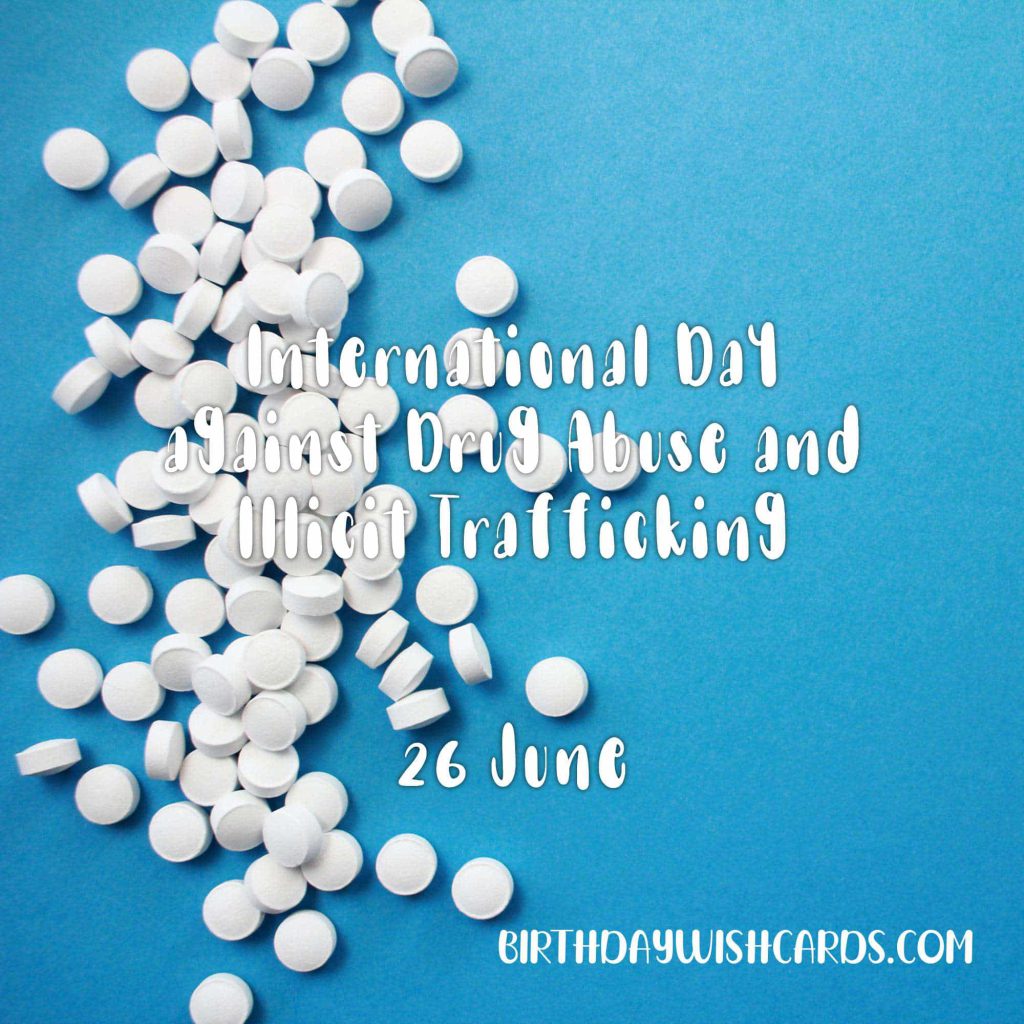
26 June: International Day against Drug Abuse and Illicit Trafficking
Origin of the International Day against Drug Abuse and Illicit Trafficking
The International Day against Drug Abuse and Illicit Trafficking is observed every year on 26 June. Established by the United Nations General Assembly through resolution 42/112 on 7 December 1987, this day represents a global commitment to strengthening action and cooperation toward a society free from drug abuse.
The choice of 26 June commemorates the date in 1971 when then UN Secretary-General Dr. U Thant launched the first international day dedicated to raising awareness of the major challenges posed by illicit drugs. Since then, this observance has become a significant event on the global calendar, highlighting the dangers of drug abuse and promoting preventive measures.
The United Nations’ Role and Actions
The United Nations has been instrumental in addressing the global drug problem through a range of mechanisms and resolutions. The Commission on Narcotic Drugs (CND), established by the Economic and Social Council (ECOSOC) in 1946, serves as the central policymaking body responsible for monitoring the implementation of international drug control treaties and coordinating global efforts.
By designating 26 June as the International Day against Drug Abuse and Illicit Trafficking, the UN reaffirmed its commitment to combat drug abuse and illicit trafficking. This day underscores the importance of international cooperation and collective action to achieve a drug-free world.
The United Nations Office on Drugs and Crime (UNODC) supports member states by promoting a balanced, comprehensive, and evidence-based approach to the global drug challenge. This strategy addresses both supply and demand, prioritizes public health, and upholds human rights within the framework of international drug control.
Key elements of the UNODC’s approach include:
- Providing treatment, support, and rehabilitation services for individuals affected by drug abuse
- Ensuring access to controlled substances for legitimate medical and scientific purposes
- Supporting farmers formerly involved in illicit crop cultivation to develop sustainable and alternative livelihoods
- Strengthening criminal justice and institutional frameworks for effective drug control, in line with international conventions
The Global Impact of Drug Abuse and Illicit Trafficking
Drug abuse and illicit trafficking present serious threats to global health, security, and development. The consequences extend beyond individual health, affecting families, communities, and entire nations. Illicit drug markets fuel organized crime, corruption, and violence, destabilizing societies and undermining the rule of law.
According to the UNODC Global Report on Drug Trafficking, millions of people worldwide are affected by drug use disorders, with many lacking access to adequate treatment and support. The drug trade generates billions in illicit profits, often laundered and reinvested in criminal activities.
Combating drug abuse requires coordinated international action, including law enforcement cooperation, public health initiatives, education, and community engagement. The International Day against Drug Abuse and Illicit Trafficking provides a platform to raise awareness, share best practices, and promote policies aimed at reducing the harmful impact of drugs.
Prevention and Rehabilitation Strategies
Effective prevention of drug abuse relies on a range of strategies tailored to different populations and settings, such as:
- Education and Awareness: Delivering accurate information about the risks of drug use to children, adolescents, and adults
- Community Programs: Engaging families, schools, and communities to support healthy lifestyles and build resilience
- Policy and Regulation: Enforcing laws to control drug availability and reduce demand for illicit substances
Rehabilitation and treatment are essential for individuals struggling with drug dependence. Evidence-based approaches—such as medication-assisted treatment, counseling, and psychosocial support—help people recover and reintegrate into society. The UNODC advocates for accessible, humane, and effective treatment services that respect human dignity and human rights.
Supporting Sustainable Alternatives for Farmers
Many illicit drugs originate from crops grown by farmers with limited economic options. The UNODC and its partners work to provide these farmers with sustainable alternative livelihoods, promoting agricultural diversification and economic development. This approach reduces the cultivation of illicit drug crops while improving the welfare of farming communities.
International Cooperation and Legal Frameworks
International drug control is governed by three major United Nations conventions:
- The Single Convention on Narcotic Drugs (1961, as amended by the 1972 Protocol)
- The Convention on Psychotropic Substances (1971)
- The United Nations Convention against Illicit Traffic in Narcotic Drugs and Psychotropic Substances (1988)
These treaties provide the legal foundation for global efforts to regulate drugs and combat illicit trafficking. Member states collaborate through the CND and other UN bodies to implement these frameworks effectively.
Raising Awareness on the International Day
Each year, the International Day against Drug Abuse and Illicit Trafficking is marked by events worldwide to raise awareness about the dangers of drug abuse and to promote prevention and treatment. Activities include public seminars, educational campaigns, cultural events, and policy dialogues.
By participating in this day, governments, civil society organizations, and individuals demonstrate their commitment to addressing the drug problem and building healthier communities.
Visual Representation of the Issue
The following images highlight various aspects of drug abuse and illicit trafficking, serving as powerful reminders of the ongoing challenges and the need for continued action:

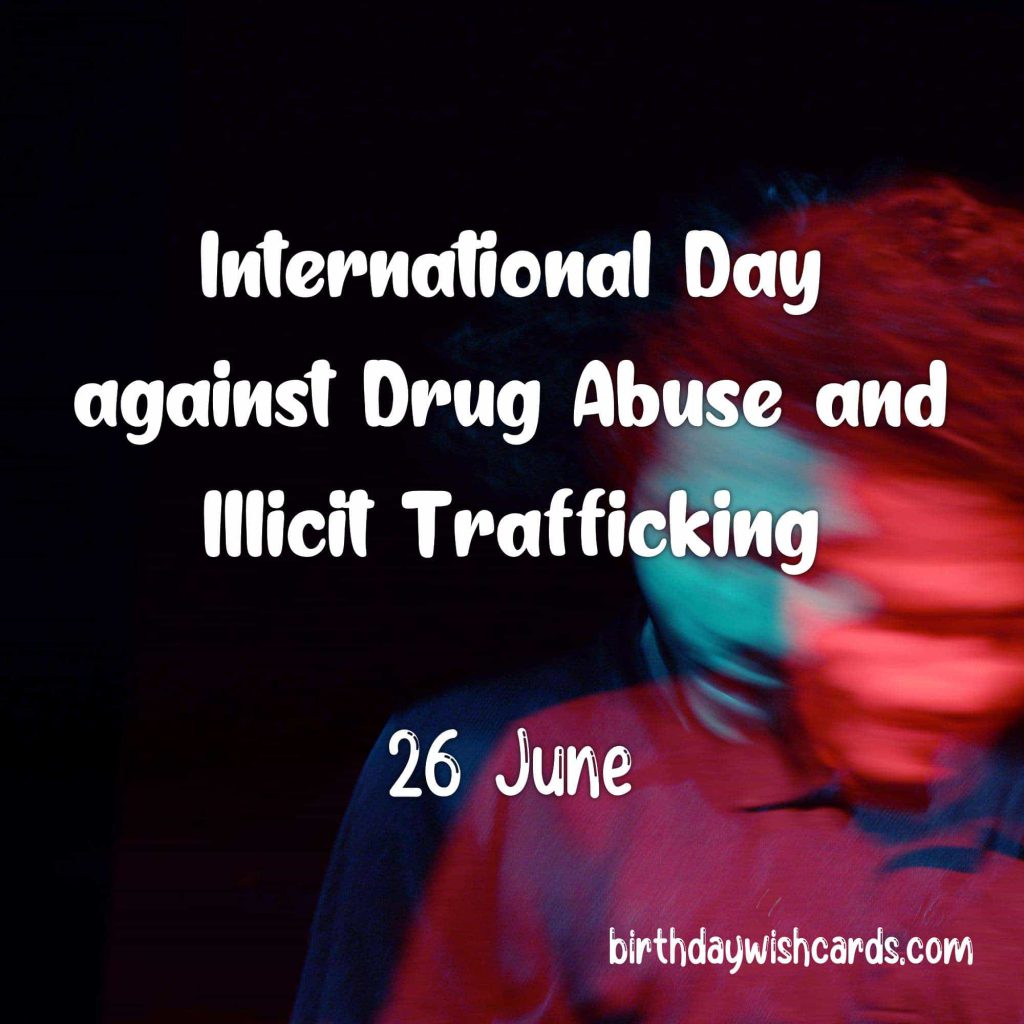
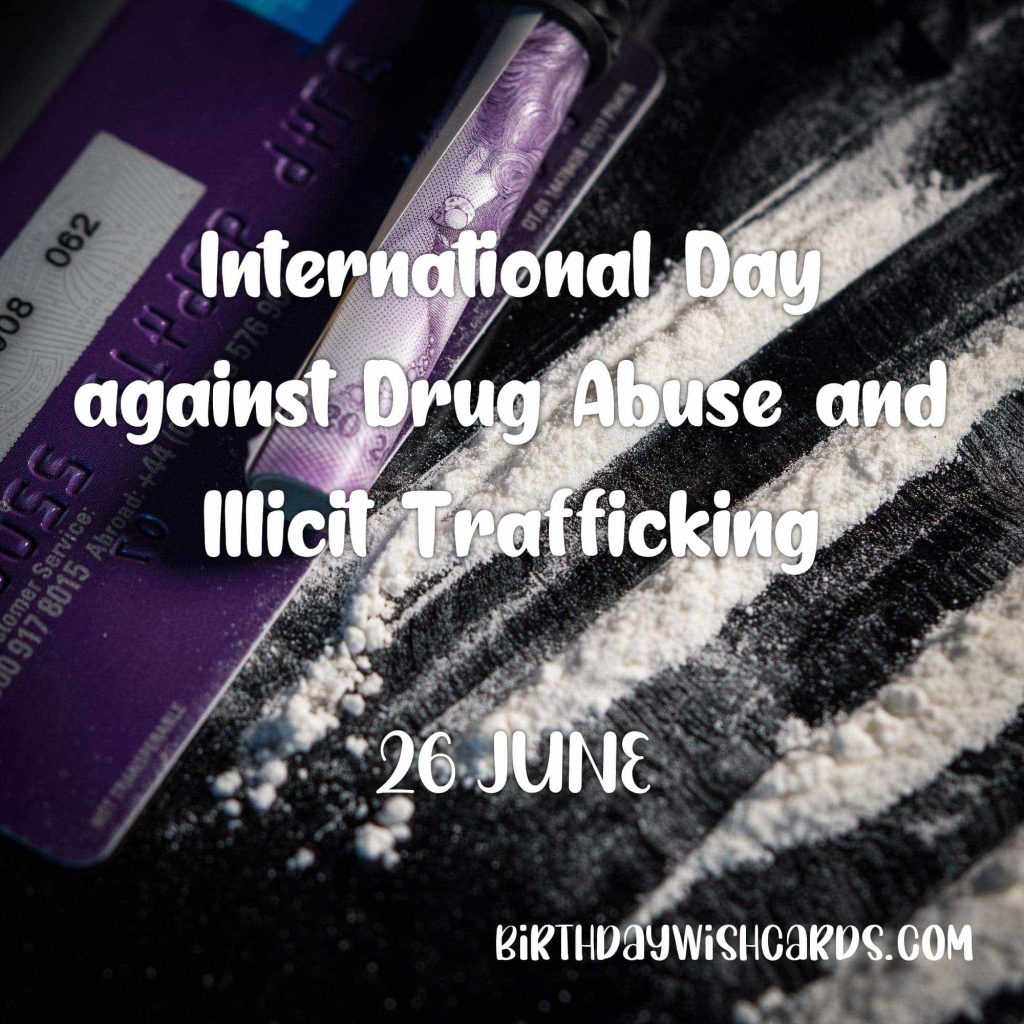
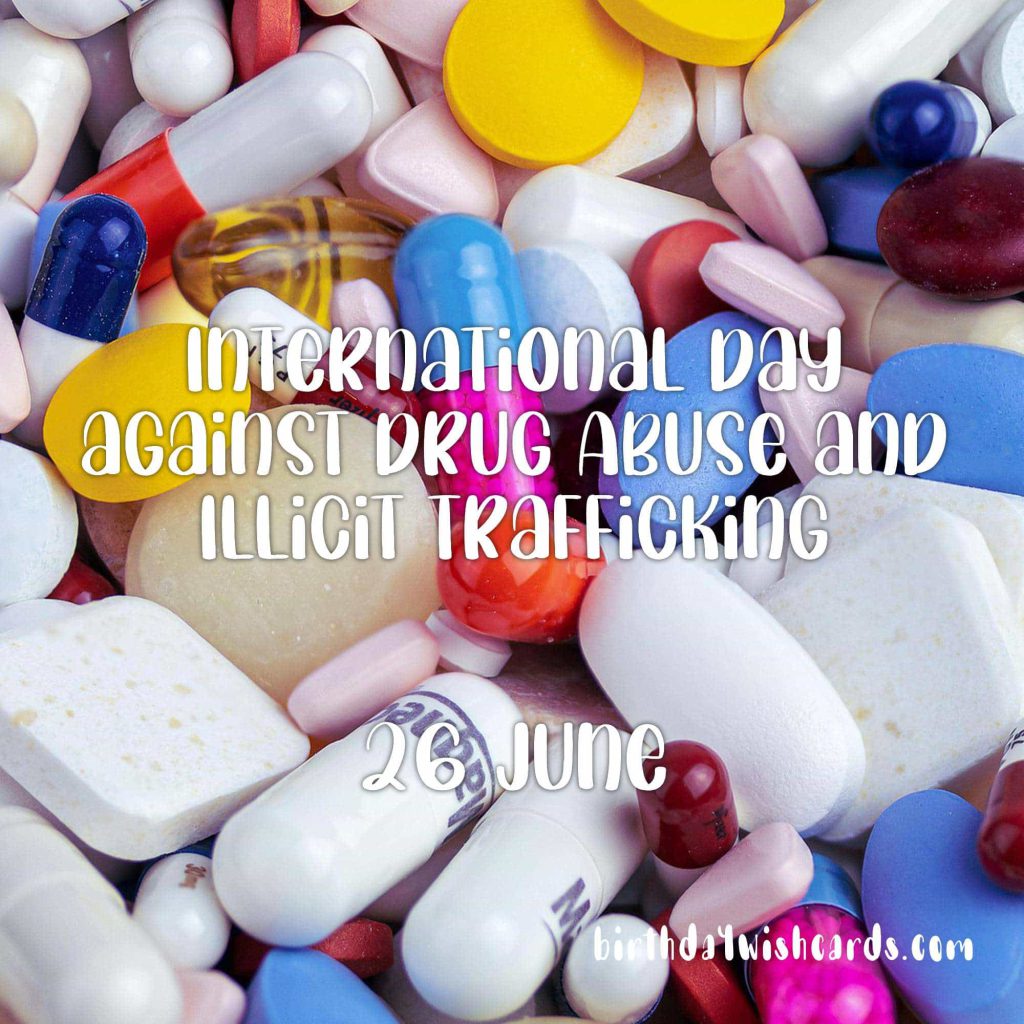
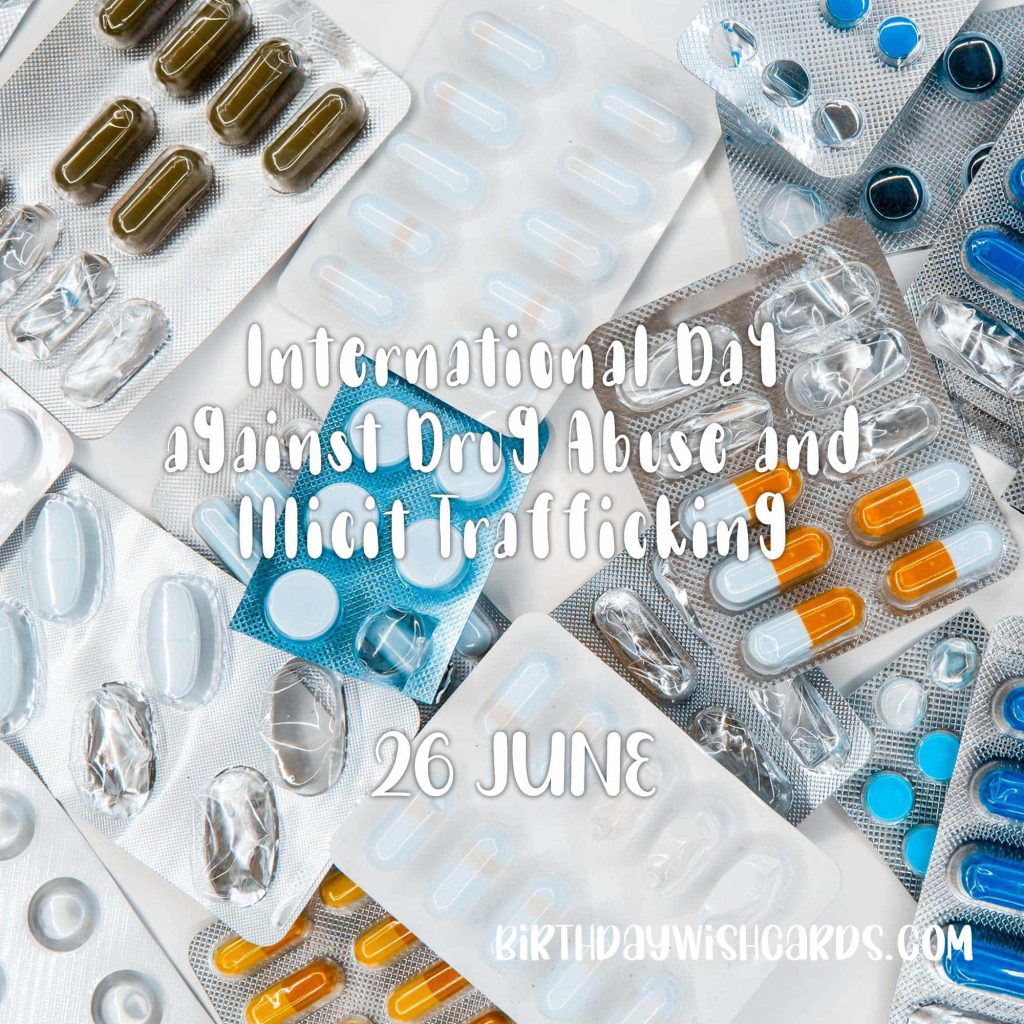
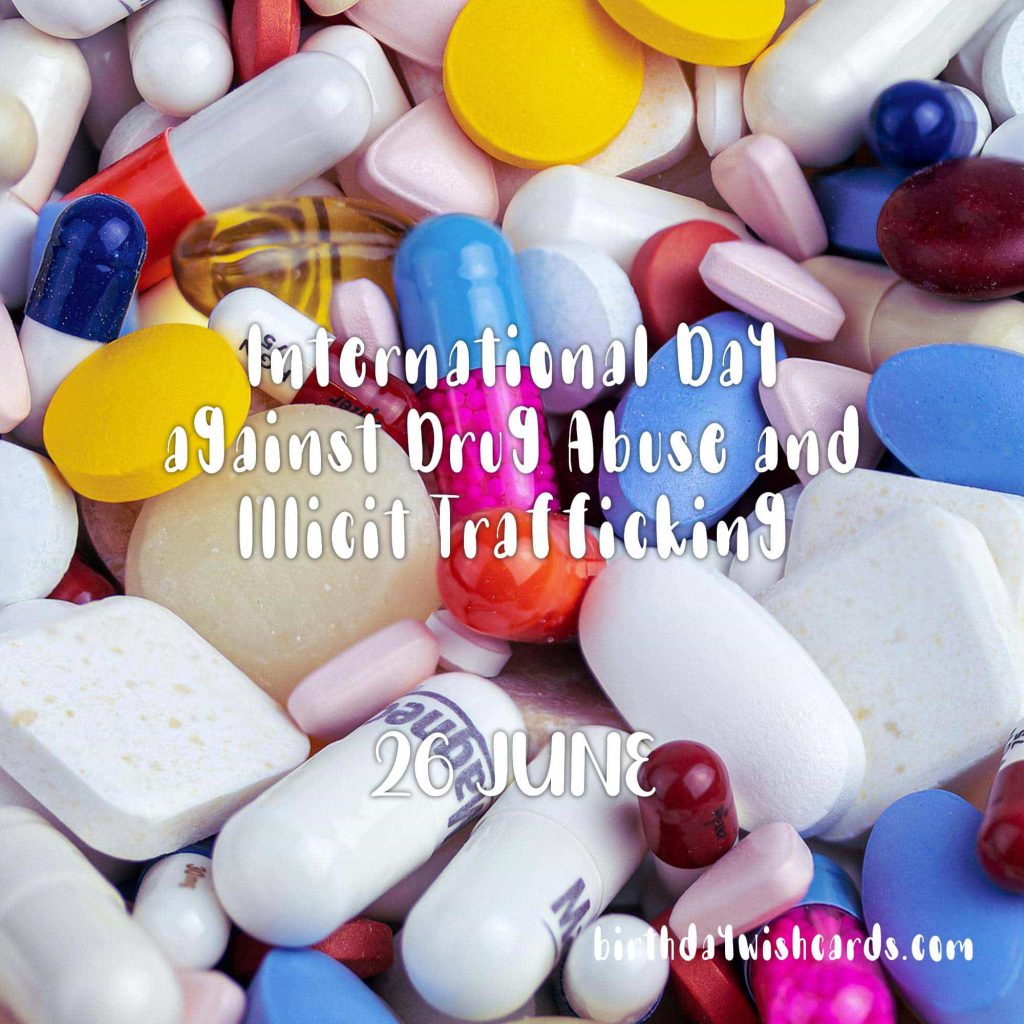
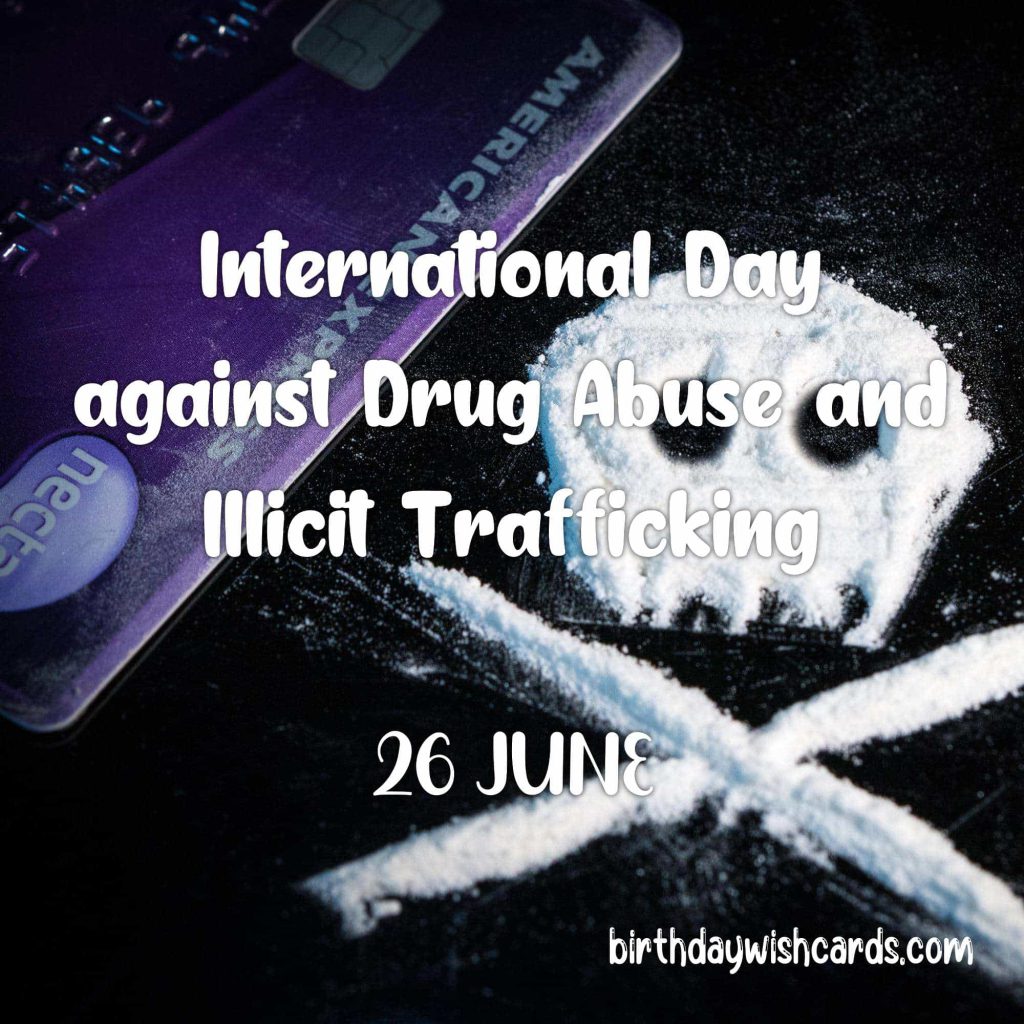
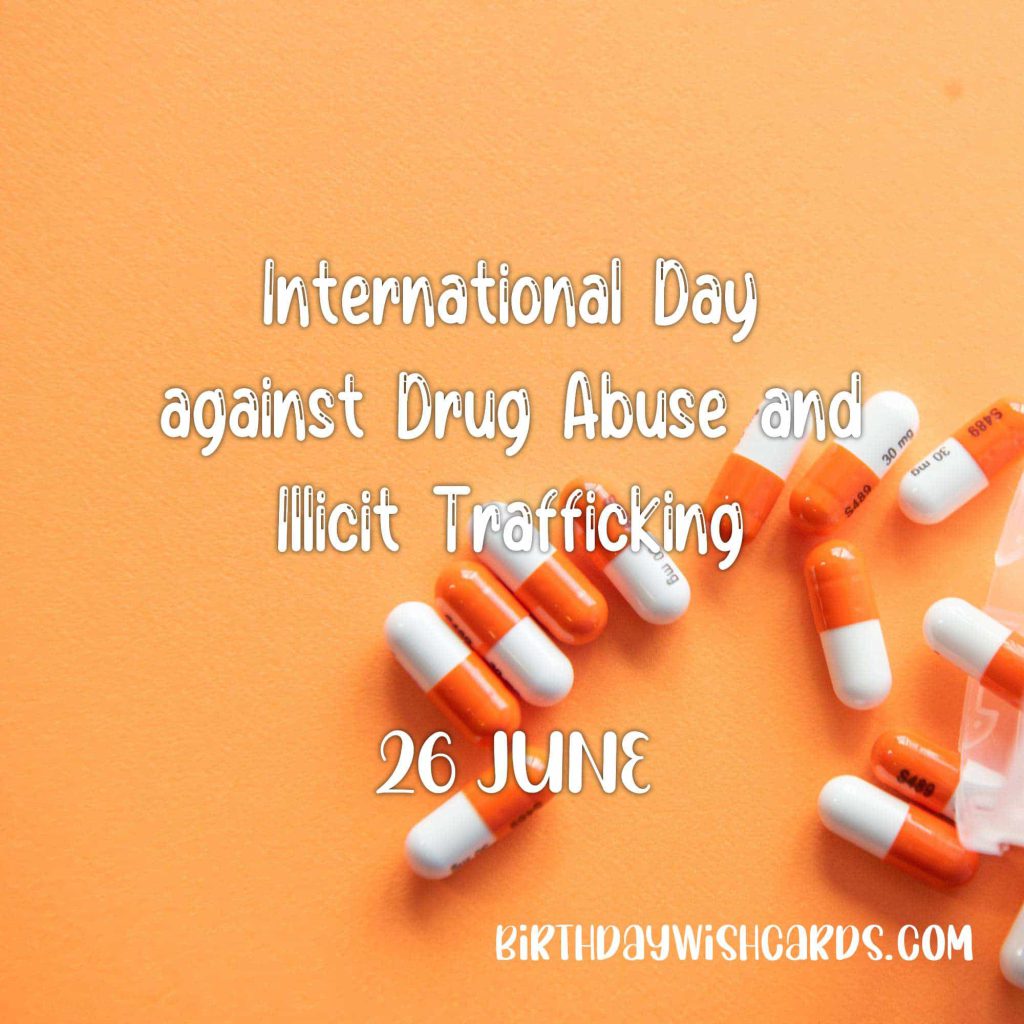
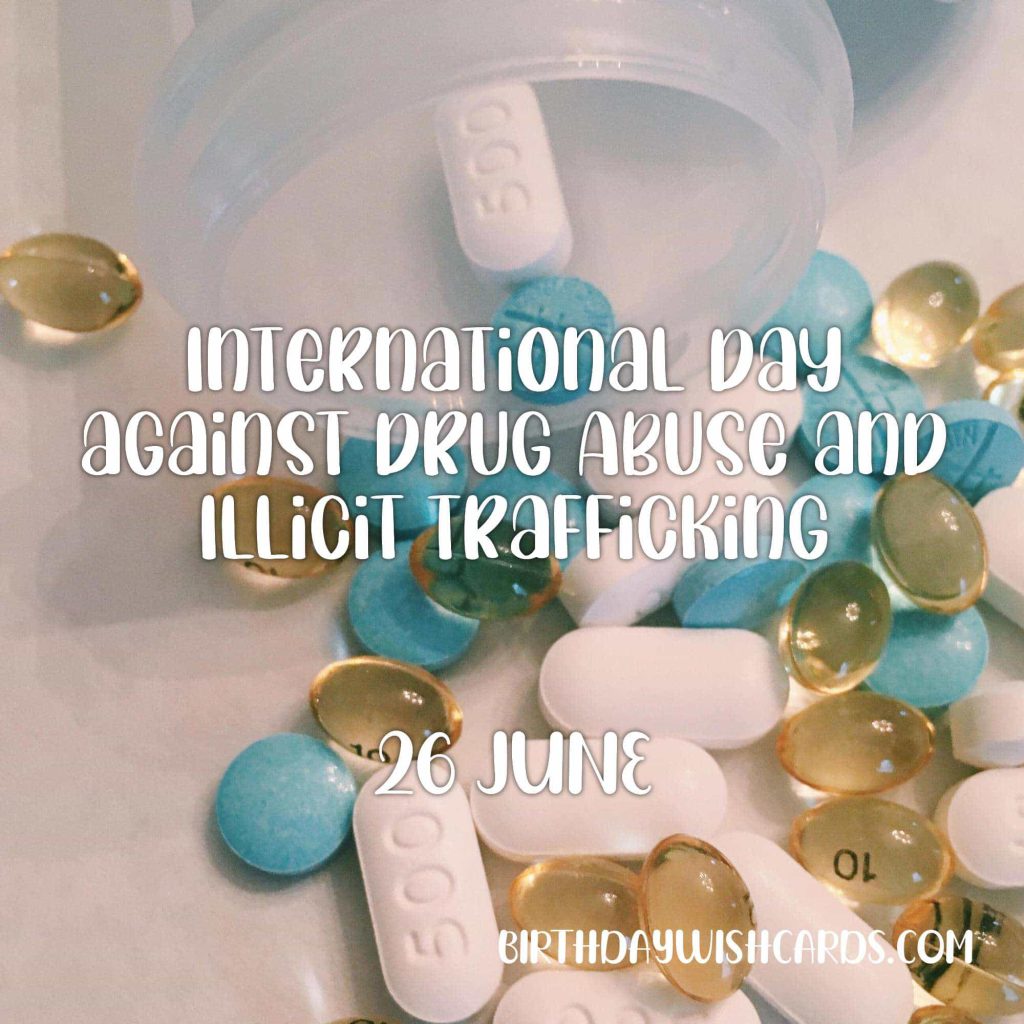
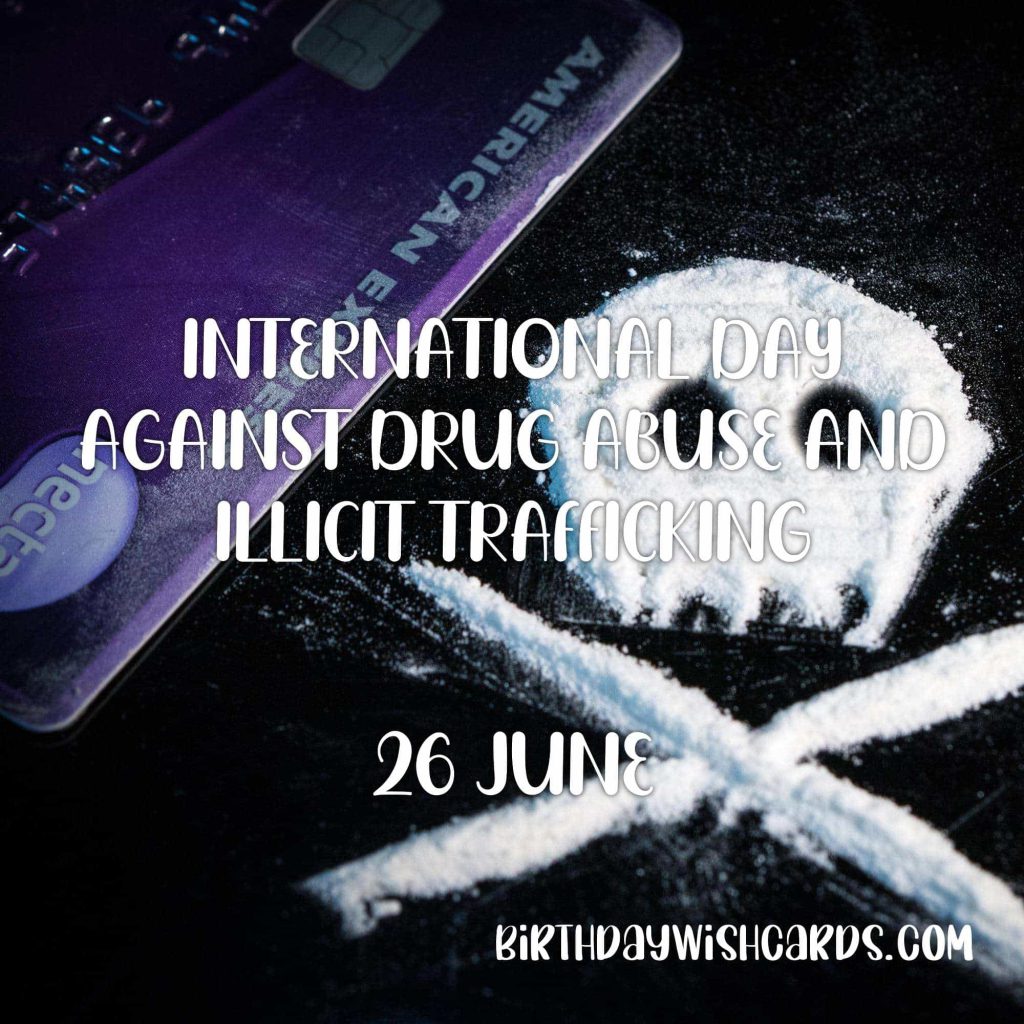
Conclusion
The International Day against Drug Abuse and Illicit Trafficking, observed on 26 June, serves as a vital reminder of the ongoing global challenge posed by drugs. It calls for united efforts to prevent drug abuse, support those affected, and dismantle illicit drug trafficking networks. Through education, treatment, sustainable development, and international cooperation, the vision of a drug-free world is within reach.
For more information on global drug control efforts and initiatives, visit the United Nations Office on Drugs and Crime (UNODC) and the World Health Organization’s Substance Use page.




